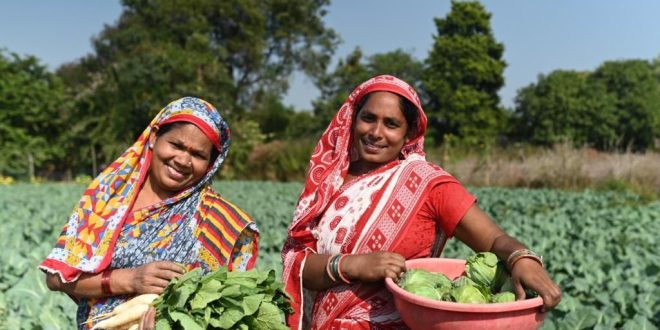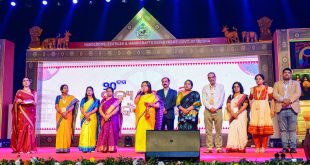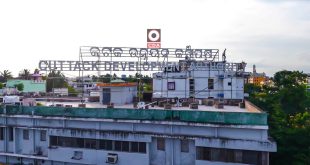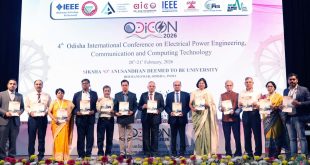Bhubaneswar: Vedanta Aluminium’s agriculture-based sustainable livelihood initiative “Jeevika Samriddhi Project” has been unfolding a remarkable tale of transformation among the farmers in Odisha’s Jharsuguda district.
By introducing ‘Climate Smart Agricultural Practices’ and allied interventions, Vedanta Aluminium’s this flagship project has elevated the lives of over 400 farming households in its initial phases.
With the third phase underway now, the project aims at empowering an additional 500 farming households in the villages of Parmanpur, Kumudapali, and Dalki in Jharsuguda district.
Sharing his transformative journey through the implementation of “System of Rice Intensification (SRI)” method of paddy cultivation, an elated Manbodh Pradhan from Parmanpur village informed, “SRI reduced my input costs and increased my productivity, now I’m harvesting 51 quintals of paddy from 2 acres.”
Further sharing another success story from Gudigaon village, another joyful farmer Naresh Patel acknowledged, “The training sessions on natural pest management and organic farming methods ensured the cultivation of a range of cash crops like ginger, chilly, coriander, bottle gourd and many more which is fetching very good returns.”
Jharsuguda district’s Assistant Director of Horticulture Manoranjan Nanda, who has been closely associated with this project, remarked, “Jeevika Samridhhi is positively impacting a large number of farming households by introducing them to advanced agricultural practices as well as to the best practices in land and water management. I’m hopeful that the third phase would transform the agricultural landscape in Jharsuguda”.
Need to be mentioned that, the ongoing Phase III of Vedanta Aluminium’s ambitious “Jeevika Samriddhi Project” introduces innovative and sustainable solutions to tackle the challenges of rural agriculture. From pond restoration and solar pumps ensuring reliable irrigation to modern micro-irrigation methods optimizing water usage, the project familiarizes farmers on using advanced techniques like the “System of Rice Intensification (SRI)” and the “WADI’ model to revitalize barren lands, boosting crop yields sustainably.
Notably, the farmers, who are part of the “Jeevika Samriddhi Project” today, are engaged in cultivation round the year due to improved irrigation facilities which has reduced dependency on rains.
In its third phase, installation of solar irrigation system in existing bore wells has augmented the irrigation infrastructure for the farmers. The implementation of solar-powered irrigation facilities supports farmers in cultivating a variety of hybrid vegetables, including leafy greens.
The SRI method (System of Rice Intensification) of paddy cultivation and adoption of cash crops have increased the average crop productivity and has enhanced the monthly income of farmers, contributing to a 50% increment in monthly income for 77% of farmers associated with the project.
With a focus on organic farming, practices such as the setting up of vermicompost tanks and bio- manure to enhance soil fertility naturally, are elucidated in detail to the farmers.
Furthermore, the project supports agri-allied activities such as pisciculture, offering farmers additional avenues for income generation. By integrating fish farming with traditional agriculture, farmers can maximize land utilization while tapping into new markets and revenue streams.
Moreover, comprehensive training from experts and exposure visits empower farmers with knowledge in climate-smart agriculture practices and modern technological interventions. Together, these initiatives not only enhance agricultural productivity, but also promote environmental sustainability and economic resilience within rural communities.
 Update Odisha-Latest Odisha News I Breaking News Get latest news on Odisha, Govt. Jobs, OSSC, OPSC, Entertainment, Crime, Sports, and Education
Update Odisha-Latest Odisha News I Breaking News Get latest news on Odisha, Govt. Jobs, OSSC, OPSC, Entertainment, Crime, Sports, and Education



